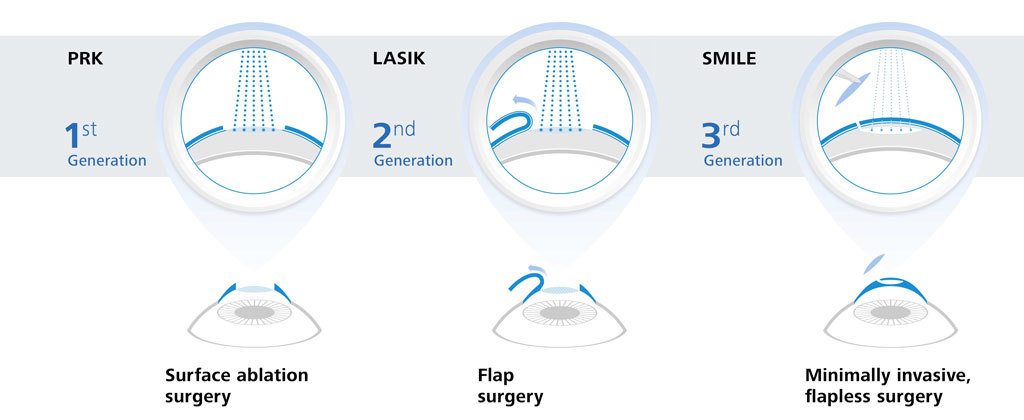Is SMILE Eye Surgical Procedure Right For You? Key Considerations And Insights
Is SMILE Eye Surgical Procedure Right For You? Key Considerations And Insights
Blog Article
Authored By- LASIK Wavefront Eye Surgery
If you're considering SMILE eye surgery, ponder this: are you prepared to accept potential visual freedom, or does the thought of any kind of dangers make you think twice? Your choice will depend upon a cautious balance of considering the advantages against the uncertainties. It's crucial to delve deeper right into the subtleties of SMILE surgery to make an enlightened option that lines up with your visual goals.
Comprehending SMILE Eye Surgical Procedure
When thinking about SMILE Eye Surgical treatment, it is necessary to recognize the treatment and its advantages. SMILE, which stands for Small Incision Lenticule Removal, is a minimally invasive laser eye surgery that remedies common vision problems like myopia (nearsightedness).
Throughout the procedure, your eye doctor will certainly utilize a femtosecond laser to develop a little laceration in your cornea. With this incision, a little disc of tissue called a lenticule is removed, reshaping the cornea and remedying your vision.
Among the vital benefits of SMILE Eye Surgical treatment is its quick recovery time. Many people experience enhanced vision within a day or two after the procedure, with very little discomfort.
Furthermore, SMILE is recognized for its high success price in offering lasting vision correction. Unlike LASIK, SMILE does not require the creation of a flap in the cornea, decreasing the danger of complications and allowing for a much more secure corneal structure post-surgery.
Comprehending the treatment and its benefits is critical when taking into consideration SMILE Eye Surgical procedure for vision modification.
Benefits and drawbacks of SMILE
Taking Into Consideration SMILE Eye Surgical treatment for vision improvement features different advantages and prospective drawbacks.
One of the main pros of SMILE is its minimally invasive nature, as it includes a little cut and generally results in quick recuperation times. The procedure is also recognized for triggering minimal pain and dry eye signs and symptoms post-surgery compared to other vision improvement methods. Additionally, SMILE has been shown to provide excellent aesthetic end results, with lots of people accomplishing 20/20 vision or better.
On the other hand, a potential disadvantage of SMILE is that it might not be suitable for individuals with extreme refractive mistakes, as the therapy range is rather minimal contrasted to LASIK. One more factor to consider is that the discovering contour for doctors executing SMILE can impact the accessibility of knowledgeable service providers in specific locations.
https://www.healio.com/news/ophthalmology/20210217/blog-the-50-lasik-consult is essential to consider these benefits and drawbacks very carefully when deciding if SMILE is the appropriate option for your vision improvement requirements.
Establishing Qualification for SMILE
To identify if you're qualified for SMILE eye surgical procedure, your eye doctor will perform an extensive examination of your eye wellness and vision demands. Throughout https://permanenteyecolorsurgery32087.theisblog.com/29464838/choosing-in-between-lasik-and-prk-which-eye-therapy-is-best-for-you , variables such as the stability of your vision prescription, the thickness of your cornea, and the general health of your eyes will certainly be assessed.
Typically, prospects for SMILE more than 22 years old, have a steady vision prescription for a minimum of a year, and have healthy corneas without conditions like keratoconus.
Your ophthalmologist will certainly additionally consider your total eye wellness, any kind of existing eye problems, and your lifestyle needs to figure out if SMILE is the best selection for you. It's necessary to interact any specific aesthetic needs or concerns you may have throughout this analysis to make certain that the therapy straightens with your assumptions.
If you aren't eligible for SMILE, your eye doctor might suggest alternate vision modification choices that better suit your private requirements and eye health standing.
Final thought
Inevitably, making a decision whether SMILE eye surgery is right for you requires cautious consideration of your individual eye health and visual needs. Consult with your optometrist to determine your qualification for the treatment and evaluate the prospective advantages and drawbacks. Keep in mind to connect any kind of issues or concerns you might have throughout the evaluation process to make an informed decision regarding your vision modification choices.
